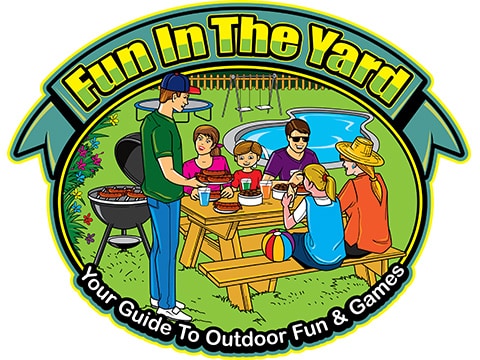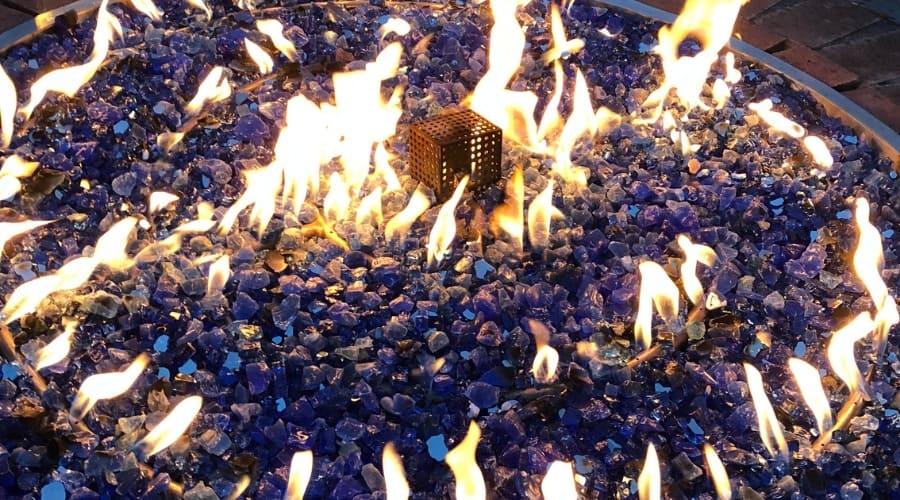Is a propane fire pit considered open burning? Each municipality has its definition of open burning and its legality. It’s essential to check with your city, county, or state for clarification of the regulations that apply to your area.
In many areas, the operation of a propane fire pit is legally defined as open burning. When a fire is present in an open outdoor area, regardless of the source of fuel used to feed the fire, it’s considered open burning.
Open burning in areas calling for a ban on all open burning can result in a citation and a fine from local law enforcement. Some municipalities may allow the use of recreational burning even if it is considered an open burn.
Find out how to know if it is legal for you to use a propane fire pit when bans on open burning are in place.
Table of Contents
What Is Open Burning
Open burning is defined differently from one city, county, or state to another. In general, having a fire without a chimney or stack in an outdoor area even in a receptacle is considered open burning.
The definition of open burning includes burning any materials that release contaminants into the air directly versus passing the vapors through a chimney or a stack. This includes propane fire pits.
Is A Propane Fire Pit An Open Fire
A propane fire pit is considered an open fire. In some cases, propane fire pits fall under the category of recreational burning. This activity may be legal when burning other materials in a fire pit.
I’ve included examples from several official agencies that define open burning and the regulations that pertain to this type of open burning to clarify whether some types of open burning are allowed, and under what conditions the activity is legal.
EPA Regulations For Open Burning
Any fires including outdoor recreational fires can contribute fine particle pollution into the air, particularly in some metropolitan areas.
Propane is considered to be a cleaner source of fuel for outdoor fire pits and is encouraged over burning wood or other materials.
The Environmental Protection Agency defers the legality of such burning to local municipalities. Some enforcement agencies will allow this type of open burning while others require permits for the use of propane fire pits, and others ban them.
It’s situational depending on local regulations. There is no blanket covering when it comes to the rules for open burning.
PWC.gov Regulations For Open Burning In Virginia
The state of Virginia near Washington DC allows the use of propane fire pits in an area of three feet or less in diameter and two feet or less, as long as it is used for warmth, cooking, ceremonial, pleasure, or similar purposes.
It further explains “The burning of materials wherein products of combustion is emitted directly into the ambient air without passing through a stack or chimney from an enclosed chamber. Open burning does not include road flares smudge pots and similar devices associated with safety or occupational uses typically considered open flames or recreations fires.”
No rubbish may be burned in such a pit legally.
Kitsap County, Washington State Regulations For Open Burning
What kind of fires are allowed in No Burn Zones? Only recreational fires are allowed in no burn zones. See county regulations for recreational fire types and regulations.
Pierce County, Puget Sound Regulations For Open Burning
When used for common cooking, factory manufactured barbecues using charcoal briquettes, natural gas, or propane gas for fuel are exempt from open burn regulations.
Multnomah County, Portland, Oregon Regulations For Open Burning
Considering this, is it legal to build a fire pit in my backyard?
If you are burning in your backyard and you’ve dug a pit in your yard and you’ve put cement blocks around it, you’re burning illegally.
Rule Two: fires must be at least 15 feet from a house, garage, low-hanging branches, or anything else that will burn. Rule three: you can’t leave them.
Similarly, there was a burn ban in Portland Oregon? From October 1 through March 1, homeowners, renters, and businesses in Multnomah County cannot use wood stoves, fireplaces, or any outdoor wood-burning devices on days when the air quality is forecasted to be poor.
This includes fireplaces and outdoor fire pits.
These are examples pulled from various municipalities around the United States. I use them to highlight the fact that every city, state, and county has its definitions of outdoor burning, and accompanying rules and regulations.
It is essential to get the facts about the area you live in for any rules, restrictions, or regulations because they are very different from one area to another.
Propane Fire Pit Regulations
Outdoor propane fire pits come with laws and regulations to ensure the safety of people, property, and the environment.
I can assure you that every municipality has its regulations governing the use of propane fire pits. It’s essential to learn the laws as they pertain to your area, but there are some general regulations that everyone must observe.
Bear in mind that these are general rules, and you may need to make adjustments for your area if propane fire pits are allowed.
Proper Measurements
The Unified Fire Authority states that residents that are allowed backyard fire pits must ensure that fire pits are 2 feet in height and 3 feet in diameter at a maximum, referring to the fuel area, or burn area.
The overall structure of the pit may be larger.
Proper Distance
Natural gas and propane firepits must have a minimum required clearance of 10 feet or more. Portable pits must be at least 15 feet from any structure or flammable materials.
Supervision
Backyard fire pit regulations stipulate that the fire must be monitored at all times, continuously until the fire is completely extinguished.
No fire of any type may be left unattended for any amount of time. There must be an emergency method for extinguishing the fire available and ready to use, such as a bucket of water or a garden hose.
Burning Regulations
Only clean, dry, natural materials may be burned in a propane fire pit. Burning garbage, plastic, rubber, oils, or some other materials is prohibited.
Only clean dry materials may be burned. In some areas, propane fire pits may be restricted when there is a burn ban in effect.
It is the responsibility of the homeowner to ensure that open burning is allowed for propane fire pits on the day that it is used.
Some municipalities may place restrictions on outdoor fire pits, while others do not.
Helpful Tips To Know About Open Burning Laws For Propane Fire Pits
The laws and regulations for open burning for propane fire pits are vague in most areas at best. The laws are different from one city to another.
Rules and regulations can vary so much that it is essential for everyone who uses a fire pit to check with their city and county to learn about the rules that apply to this type of open burning.
Here are a few helpful tips to know about open burning laws for propane fire pits.
- The height and width of the fuel area of the fire pit must comply with your local regulations for outdoor fire pits.
- The fire pit must be the specified distance from all flammable materials, vegetation, and structures.
- Only clean dry materials may ever be burned in a propane fire pit, without exception.
- Some municipalities require permits to legally operate a propane fire pit for backyard use. It is your responsibility to check on your local laws about permitting or specified days when open burn bans including propane fire pits are in effect.
Final Thoughts
Is A Propane Fire Pit Considered Open Burning? The answer is yes, in most cities, counties, and states, it is considered open burning.
The laws and regulations that govern the use of propane fire pits are very different from one place to another, however.
Vague laws further complicate matters. Anyone who operates a propane fire pit is required to obtain the facts from their local governments to become familiar with the specific regulations, if any, that govern the use of propane fire pits.
You may be required to obtain a permit before using your fire pit, while not all areas require it. Some cities may impose a ban on all open burning when the air quality sags below healthy levels.
The regulations for using a propane fire pit are very much situational and depend upon where you live and may even depend upon the environmental conditions on any given day.
You may live in an area of the country where they’re not heavily regulated or you may need to check on any new restrictions daily. Don’t let this stand in the way of your enjoyment of your propane fire pit.
Most cities allow free use of these amazing recreational units, but it’s better to be safe than sorry.

